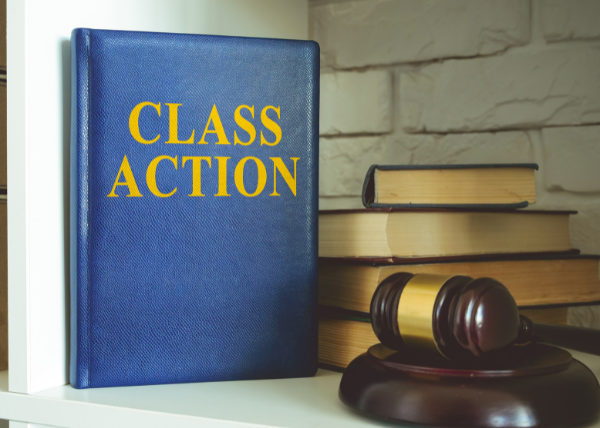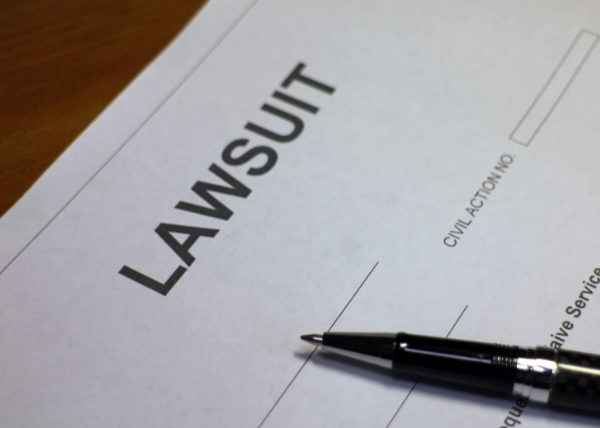In the realm of legal battles, the term "class action lawsuit" carries a unique weight. Not only is a class action lawsuit a legal maneuver, but it's a testament to how powerful collective action is. Individuals with shared grievances are momentarily united to fight corporate wrongs or systemic injustices. We'll dive into what a class action lawsuit is, what to do if you believe you qualify, and why class action lawsuits are so important.

A class action lawsuit is a legal mechanism that allows a group of individuals, known as the class, to collectively bring a legal claim against a common defendant. This legal strategy is employed when a large number of people share similar grievances, typically against a company, organization, or entity, for actions that have caused harm or violated their rights. Instead of each affected individual filing a separate lawsuit, a representative plaintiff, often known as the lead plaintiff, files a single lawsuit on behalf of the entire class.
Key features of a class action lawsuit include:
Class action lawsuits are commonly used in various legal contexts, including consumer protection, employment law, environmental issues, and product liability. They provide a powerful means for individuals with similar grievances to seek justice collectively, leveling the legal playing field against entities with significant resources.
There are quite a few class action cases that remain infamous in the courtrooms. Here are just a few:
State attorneys general and major tobacco companies reached an unprecedented settlement, resolving lawsuits filed by several states to recover smoking-related healthcare costs. This class action marked a turning point in tobacco regulation, increasing the cost of cigarettes, restricting tobacco marketing, and promoting public health initiatives.
Volkswagen faced a massive class action after admitting to installing emission-cheating software in its diesel vehicles. This case, involving millions of affected consumers, underscored the importance of truth in advertising and resulted in a significant settlement for vehicle owners.
Google faced a class action for privacy violations related to its Street View program, which collected data from unencrypted Wi-Fi networks. The case underscored the importance of protecting consumer privacy in the digital age and resulted in a settlement emphasizing data security measures.
Protect yourself and your loved ones by staying updated on lawsuits posted on Class Action 101.
If you have suffered a legal wrong and believe others have as well, you may have grounds for a class action lawsuit. We'll give you a rundown of the next steps.
Starting a class action lawsuit requires strategic planning, legal expertise, and a commitment to representing the interests of the class. Working closely with a knowledgeable attorney is crucial to navigating the complexities of this legal process. Start the process today by filing a claim through our site and we'll get you in contact with our knowledgeable team of attorneys.
Besides the potential compensation, there are other benefits to participating in a class action lawsuit. Understanding these benefits illuminates the significance of collective legal action in addressing widespread grievances and ensuring justice.
Class actions consolidate numerous individual claims into a single proceeding, preventing courts from being inundated with identical cases. This promotes efficiency, saving time and resources for both the court and the litigants.
Class actions empower individuals who might otherwise be deterred by the cost and complexity of pursuing individual lawsuits. This collective approach ensures that even those with modest means can seek redress for their grievances.
Class actions provide a uniform resolution for all class members, ensuring consistent treatment and eliminating the risk of contradictory judgments. This fosters fairness and predictability in legal outcomes.
Class actions can hold corporations and entities accountable for widespread harm or wrongdoing. This accountability is crucial in promoting ethical business practices and discouraging actions that could harm consumers, employees, or the environment.
The potential for substantial damages in class action lawsuits serves as a deterrent, dissuading entities from engaging in unlawful or deceptive practices. This deterrence effect contributes to a more ethical business environment.
Class actions allow individuals with relatively small individual damages to collectively pursue compensation. This aggregate recovery model ensures that even minor harms are addressed when experienced by a large number of people.
Class actions enable the efficient resolution of similar claims that share common legal and factual issues. This prevents redundant litigation and frees up judicial resources for other matters.
Class actions have the potential to instigate systemic change and reform. By addressing issues on a large scale, these lawsuits can bring attention to practices that may require legislative or regulatory adjustments.
The risk of facing a class action lawsuit can incentivize entities to comply with laws and regulations, fostering a culture of legal adherence and responsible conduct.
Class actions empower individuals to stand together, amplifying their collective voice against powerful entities. This empowerment extends beyond the courtroom, influencing social and industry norms.

If you have been harmed in a way similar to other individuals, you may qualify to join a class action. Attorneys typically define the class based on common legal and factual issues. If you receive a notice about a class action in which you may be included, it will provide details on eligibility and how to participate.
Class action attorneys typically work on a contingency fee basis, meaning they only receive payment if the case is successful, and their fees come from the settlement or judgment awarded. This incentivizes attorneys to diligently pursue the best possible outcome for the class.
After a settlement is reached, the court holds a fairness hearing to review and approve the terms. Once approved, the settlement funds are distributed to class members. The distribution process is often overseen by the court or a claims administrator to ensure fair and equitable compensation.
Class actions are suitable for cases where a large group of individuals has suffered similar harm or has common legal claims. This includes consumer protection, product liability, securities fraud, antitrust violations, employment discrimination, and environmental cases, among others.
Whether or not a class action settlement is taxable depends on the type of damages received. Generally, any compensation that is intended to make up for physical injury is not considered taxable income.